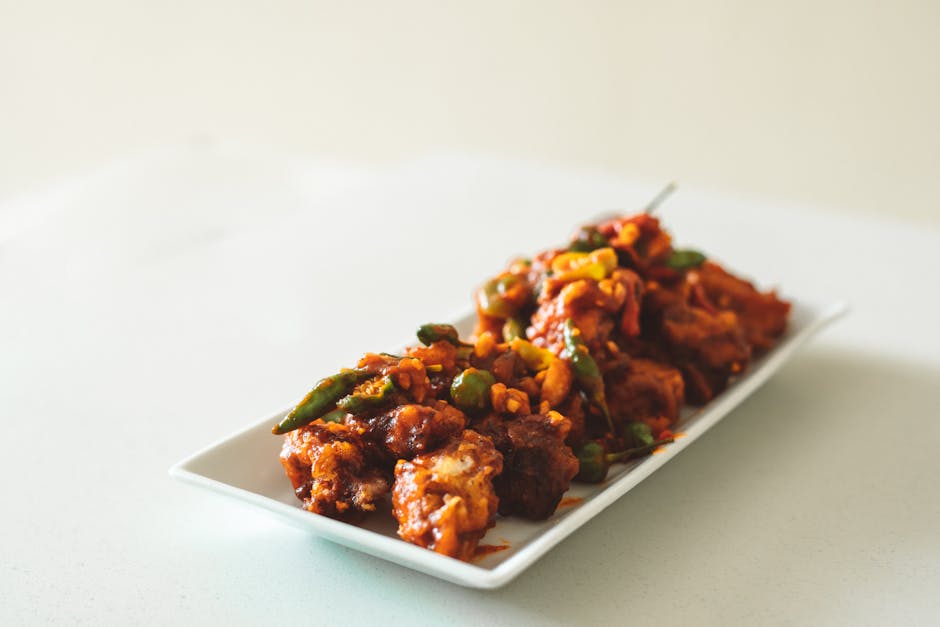The culinary world boasts countless techniques aimed at enhancing the taste and texture of meat. Among these, marinating stands out as a simple yet profoundly effective method. This process, involving submerging meat in a flavorful liquid, profoundly impacts both the sensory experience and the chemical composition of the protein. But does it truly improve the flavor, or is it merely a culinary embellishment? A comprehensive examination reveals a multifaceted answer.
Marinades function on multiple levels, impacting flavor, tenderness, and even the visual appeal of the final dish. The primary mechanism is the infusion of flavor compounds. A marinade typically contains acids, oils, and aromatics. Acids, such as vinegar, lemon juice, or wine, denature proteins on the meat’s surface, partially breaking down muscle fibers. This process tenderizes the meat and also allows for deeper penetration of flavor compounds. The oils, usually vegetable or olive oil, contribute richness and help carry the aromatic compounds into the meat. Finally, aromatics like herbs, spices, garlic, and ginger impart their distinctive flavors, creating a complex flavor profile.
The depth of flavor penetration depends on several factors. The length of marinating time is crucial. A short marinade, say 30 minutes to an hour, mainly affects the surface of the meat, resulting in a more pronounced flavor on the exterior. Longer marinades, up to 12 hours or even overnight, allow the marinade to penetrate deeper, resulting in a more evenly distributed flavor throughout the meat. However, prolonged marinating can also lead to over-tenderization, resulting in a mushy texture. The ideal marinating time varies depending on the type and cut of meat, the thickness of the meat, and the desired level of flavor intensity.
Moreover, the type of meat significantly influences the effectiveness of marinating. Leaner cuts of meat benefit more from marinating than fattier cuts. This is because the leaner cuts have less inherent fat to provide moisture and flavor. The marinade adds moisture and flavor, offsetting the dryness that is characteristic of lean meats. Fattier meats, on the other hand, already possess a significant amount of flavor and moisture, and extended marinating might not yield proportional improvements in taste and can sometimes lead to an overly intense flavor profile.
The marinade’s composition also plays a critical role. The balance of acids, oils, and aromatics is crucial for achieving the desired result. Too much acid can make the meat tough, while too little acid might not effectively break down the muscle fibers. Similarly, the type of oil affects the final flavor and texture; olive oil adds a distinct fruity flavor, whereas vegetable oil remains neutral. The aromatics provide the complexity and depth of flavor, and careful selection of these ingredients allows for a great deal of customization and creativity.
Beyond flavor, marinades contribute to the visual appeal of the meat. The surface of the meat often becomes slightly browned or colored by the marinade, enhancing its appearance on the plate. This is particularly noticeable when using marinades with soy sauce, balsamic vinegar, or other deeply colored ingredients. Furthermore, the marinade creates a protective barrier on the meat’s surface, preventing excessive drying and charring during cooking.
Scientific studies have investigated the effects of marinating on the tenderness and juiciness of meat. Research suggests that the acid in the marinade contributes to the tenderization process by breaking down collagen and other connective tissues. The oil also plays a role in retaining moisture, reducing cooking losses, and contributing to the perception of juiciness. However, the extent of tenderness improvement depends significantly on the cut of meat and the specific marinade used.
In conclusion, while marinating does not magically transform a tough, flavorless cut into a culinary masterpiece, it significantly enhances the flavor and texture of meat, particularly leaner cuts. The process involves a complex interplay of chemical and physical changes, involving protein denaturation, flavor infusion, and moisture retention. Careful consideration of marinating time, meat type, and marinade composition is essential to achieve optimal results. Mastering the art of marinating requires experimentation and an understanding of the underlying principles, allowing for the creation of truly memorable culinary experiences. The improvement in flavor is not just a perception; it’s a result of measurable changes within the meat itself. Therefore, the answer to the question, “Does marinating meat improve the flavor?” is a resounding yes, provided the process is undertaken with a sound understanding of its underlying mechanisms.
